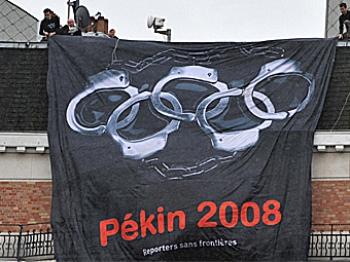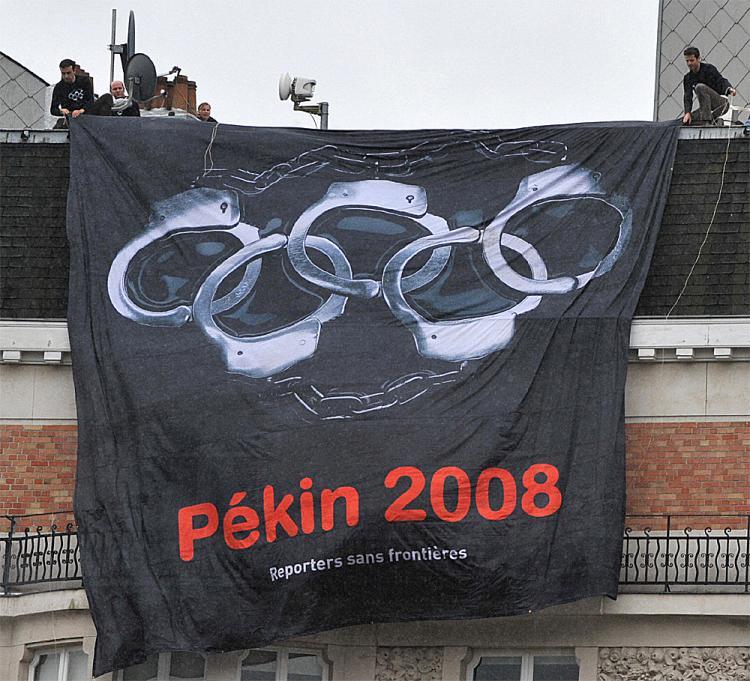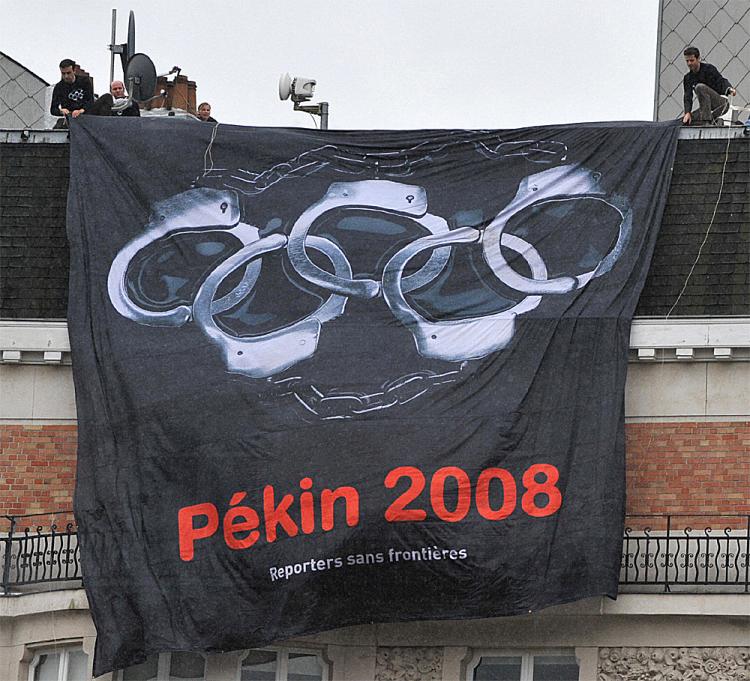Part Two of Two
A quick search for “Olympic promises” on your favorite search engine will be revealing. Google lists two million hits, and the first few pages are full of complaints and criticism from media and human rights organizations about “unfulfilled,” “empty,” “violated” or “broken” promises in connection with the Beijing Olympics.
Amnesty International’s report, “The Olympics Countdown—crackdown on activists threatens Olympics legacy,” says near the beginning, It is increasingly clear that much of the current wave of repression is occurring not in spite of the Olympics, but actually because of the Olympics.”
The story is more-or-less the same in reports by other human rights groups. The communist leadership, since Olympic bidding time in 2001, started saying that awarding China the Games would help the Chinese regime improve human rights and press freedom. Instead, the situation has gotten worse.
The problems come from the top leadership. For instance, in 2004 the head of Beijing’s Olympic Organizing Committee (BOCOG), Liu Qi, was found responsible in a U.S. Federal Court for the illegal detention and torture of Falun Gong practitioners in China. Police under his command, in his role as mayor of Beijing, subjected the plaintiffs, and other Falun Gong practitioners, to severe beatings, sexual abuse, and “electric shocks through needles placed in [the] body.”
The now notorious claim that human rights in China would improve was made in 2001, during the bidding process for the 2008 Games, by Liu Jingmin, vice president of the Beijing Olympic Bid Committee: “By allowing Beijing to host the Games, you will help the development of human rights.”
The Amnesty International report tells a different story. It profiles human rights activists, petitioners, and others who have been targeted, roughed up, arbitrarily detained, had their houses ransacked, thrown into labor camps, had a bag thrown over their head on their way home from work and driven to a mountain hideout for “questioning,” or kidnapped and beaten with electric batons. It also gives cases of those who are merely surveilled and harassed.
Hu Jia is a well-known example. He published an article on the internet about human rights violations against petitioners, and participated in an internet conference criticizing the regime for its pre-Olympic hypocrisy. He was formally arrested and charged for “inciting subversion,” one of a series of catch-all phrases that indicate only the Party’s continued distortion of notions of “legality” in crushing opposing voices. He is still in jail and his wife is under house-arrest.
Another well-known case is that of Chen Guangcheng, whose wife’s house was the scene of an attack against media attempting to interview her. Chen is blind, and his attempts to hold local authorities in Shandong province accountable for forced abortions saw him jailed, on a slightly more than four-year sentence, under a typically bogus charge.
Gao Zhisheng, a human rights lawyer who is famous for protesting the persecution of Falun Gong in open letters to China’s leaders, was re-arrested in September 2007 after he called for a boycott of the Beijing Olympics. Sound of Hope Radio reported this week that he had suffered torture for 60 days that was of a severity “beyond anyone’s imagination.” Gao is still imprisoned.
Falun Gong Targeted
Among those arrested in the preparation for the Games, Falun Gong adherents appear to have been particularly singled out. In October 2007, former Public Security Minister Zhou Yongkang issued an order that the Communist Party “must strike hard at hostile forces at home and abroad, such as ethnic separatists… and ‘heretical organizations’ like the Falun Gong.”
In recent months, the New York-based Falun Dafa Information Center (FDI) has been receiving reports from Falun Gong practitioners and their families inside China telling of door-to-door searches and arrests. In a report dated July 7, FDI claimed that there have been 8,037 arrests of Falun Gong followers across 29 provinces since December 2007, with the largest monthly total of 1,819 known arrests occurring in June of this year.
Deaths among the Falun Gong adherents arrested in the pre-Olympics crackdown are happening faster and more frequently, according to FDI. Six persons have died within two weeks of arrest, some within hours. In some cases, family members saw signs of torture on the bodies before cremation, including strangulation marks or bruises from electric batons.
Falun Gong followers tell of being tied to ‘tiger-benches’, forced into water dungeons, having bamboo rammed into their fingernails, being beaten for extended periods of time with electric batons, being branded with hot irons, injected with unknown drugs which later paralyze or in some cases kill, and much more.
They also report being routinely blood tested, which is a necessary step in the process of organ harvesting, and which independent investigators conclude is happening, systematically, to tens of thousands of imprisoned Falun Gong practitioners.
Falun Gong practitioners accounted for 66 percent of reported torture victims in custody, according to a 2006 report by the UN Special Rapporteur on Torture. The U.S. International Religious Freedom Commission estimates that Falun Gong adherents comprise half of all forced labor camp detainees.
Discrimination
Meanwhile, public statements by top officials in 2007, and a leaked internal document, show that Beijing Olympic organizers are unapologetic in their wish to ban Falun Gong participants from attending the Olympics. They are not permitted to be athletes, coaches, journalists or even spectators. Other groups have also been banned from the Games.
This is in stark violation of Chinese Constitution, which mandates freedom of association and religious belief, as well as the International Olympic Committee’s bylaws, which prohibit any form of discrimination.
Erping Zhang, FDI spokesperson comments: “We’re talking about tens of millions being barred from the Games simply for who they are. This amounts to a violation of the Olympic Charter on a scale nobody could have imagined.”
Wu Bangguo, a member of the Standing Committee of the Political Bureau of the CCP Central Committee, said to Jacques Rogge, the IOC President, in 2007: “China will keep its promises and provide good services for the big Olympic family and the audience of the Olympic Games.”
According to Wu, “Through successfully hosting the Olympic Games, we not only want to display before the world an even more open and more harmonious China, but also want to extensively carry forward the Olympic spirit in China.”
Wu also expresses the wish “to leave behind valuable legacies for China, the world and the Olympic Games.”
Amnesty International, the Falun Dafa Information Center, and other human rights organizations would describe the “legacies” of these Games in different terms.
Please see Part One: Olympic Promises Broken: Freedom of the Press







